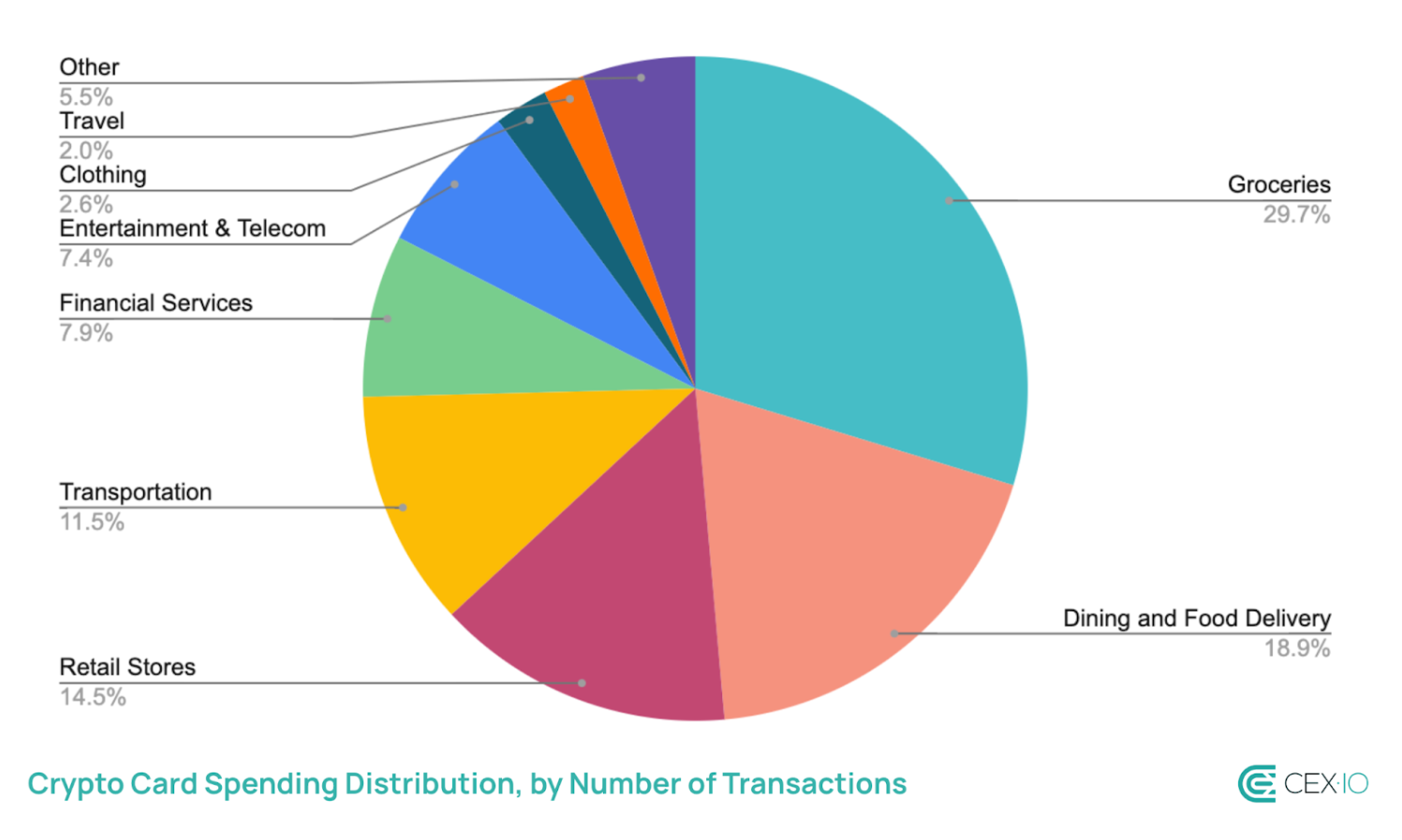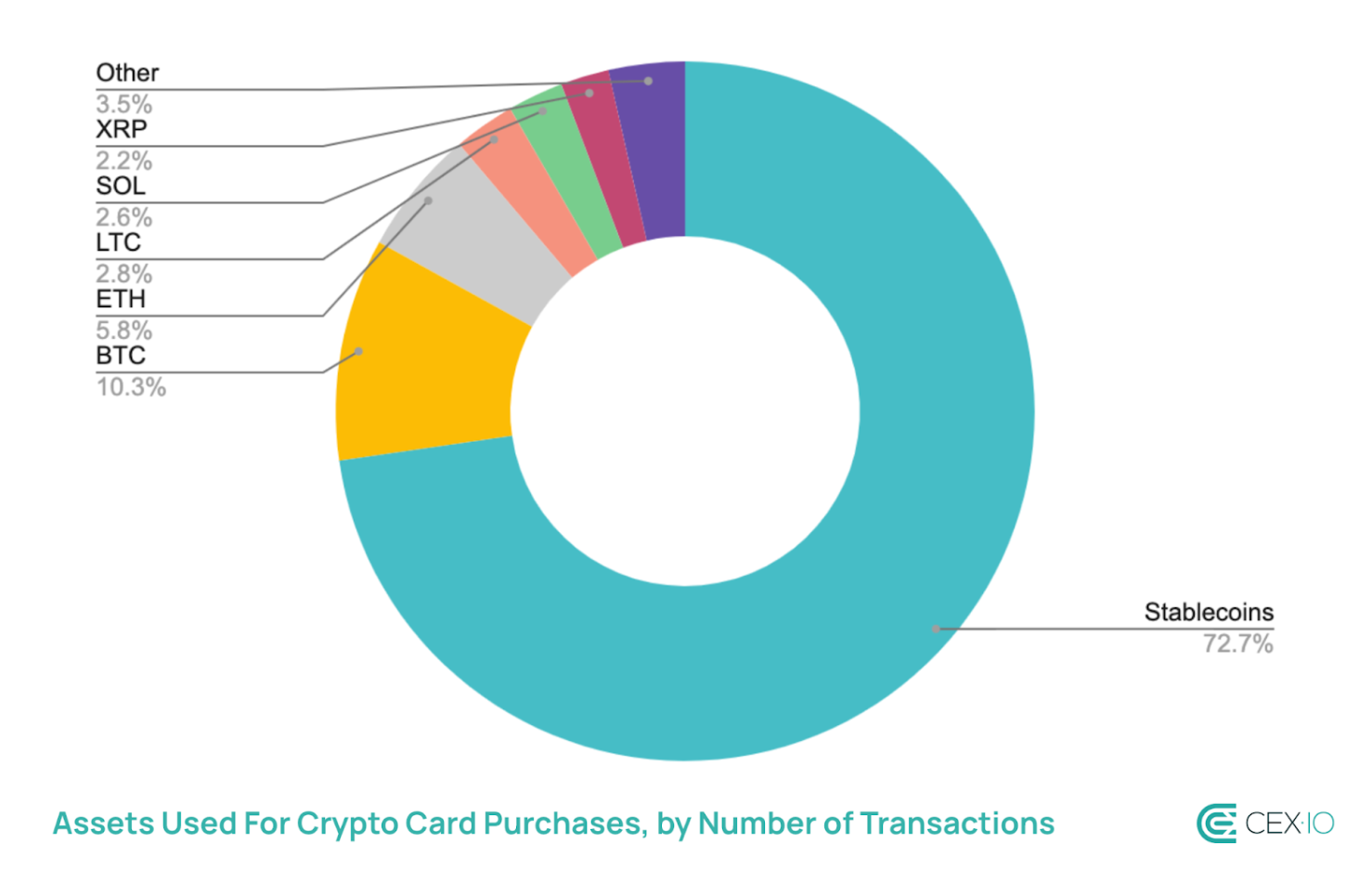
Crypto Cards Carving a Niche in European Spending
A recent report paints a compelling picture of the burgeoning crypto card market in Europe, revealing a significant shift in spending habits and a challenge to traditional banking dominance. The study, spearheaded by CEX.IO, indicates that crypto-linked cards are outpacing conventional bank cards, especially in the realm of micro-spending – transactions under 10 euros.
Micro-Spending: Crypto Cards‘ Winning Formula
Historically, cash has reigned supreme in the micro-spending arena. However, the CEX.IO report showcases a different reality. Approximately 45% of crypto card transactions fall under the 10-euro threshold, signifying that crypto cardholders are actively embracing these small purchases. This marks a pivotal moment, indicating the increasing utility of digital assets for everyday expenses, particularly in a region where card usage is already widespread.
Online Transactions Surge with Crypto Cards
The report underscores the growing preference for online payments among crypto card users. While the European Central Bank (ECB) data reveals that roughly 21% of all card payments in the Eurozone occur online, CEX.IO‘s findings show that crypto card users are already conducting 40% of their transactions on the internet. This remarkable figure is nearly double the regional average, highlighting the digital-first approach of this demographic. This trend is further fueled by the rise of mobile payments and the convenience of online shopping, aspects that crypto cards are seamlessly integrating with.
Spending Patterns Reflect a Changing Landscape
The report provides fascinating insights into the spending patterns of crypto cardholders. Groceries account for a considerable 59% of purchases, nearly matching the ECB’s 54% benchmark. Dining and bars make up 19% of spending, exceeding the average for in-person food and drink expenditures. This demonstrates how crypto cards are becoming integral to everyday life and are not limited to specific types of spending. The average crypto card transaction value stands at 23.7 euros, which is notably lower than the average of 33.6 euros for traditional bank cards, as per Q1 2025 Mastercard data. This underscores the prevalence of micro-transactions facilitated by crypto cards.

Stablecoins Leading the Charge
The study reveals a significant role for stablecoins in powering these transactions. Around 73% of transactions leverage stablecoins. Moreover, major cryptocurrencies such as Bitcoin (BTC), Ether (ETH), Litecoin (LTC), and Solana (SOL) are also actively being used for a wide range of purchases, including groceries, dining, and transportation. This reflects a wider trend of digital asset adoption beyond speculative investments and towards utility within the payment ecosystem.

Industry Perspectives & Future Outlook
Alexandr Kerya, Vice President of Product Management at CEX.IO, shared his perspective: “What we’re seeing in Europe is that crypto card users aren’t just experimenting with new tech — they’re showing us what everyday spending might look like in a truly cashless future.” He further emphasized the momentum gained, with average card payment volume rising by 24% in the last month alone.
A Contrasting View: Barclays’ Stance
While crypto card adoption is flourishing, not all institutions are onboard. Barclays has announced plans to block cryptocurrency purchases on its Barclaycard credit cards, citing concerns about the volatile nature of the crypto market and the potential risks for customers. This divergence in approaches highlights the ongoing debate surrounding the integration of crypto assets within the established financial system. However, the increasing adoption rates across other providers like Oobit and Crypto.com suggest a robust and promising future for crypto cards within the European landscape.


